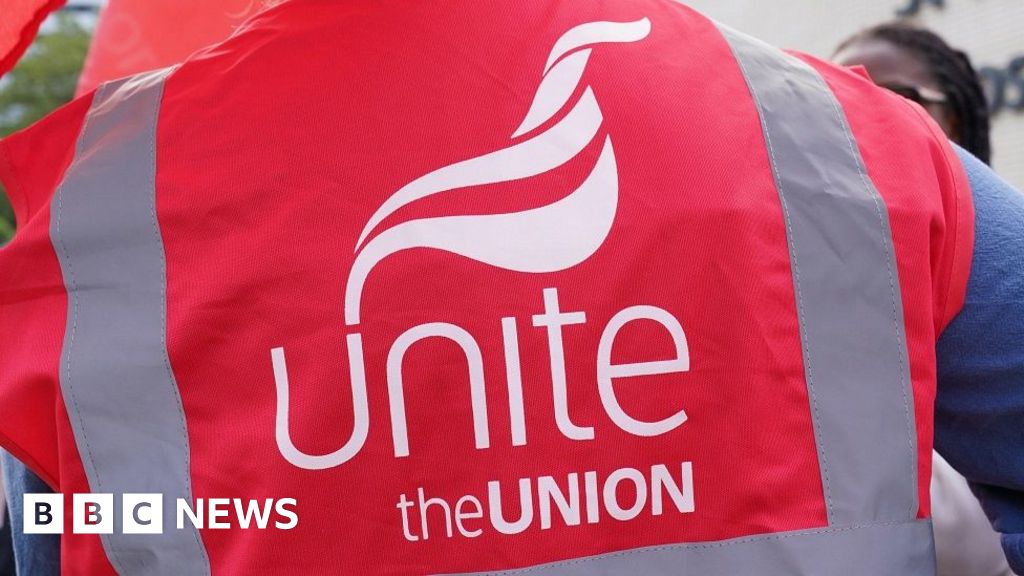ARTICLE AD BOX
By Paul Rincon
Science editor, BBC News website
image sourceHyundai
image captionHydrogen fuel cells can power vehiclesThousands of new jobs could be created by investing in low-carbon hydrogen fuel to power vehicles and heat homes, the government says.
Ministers have unveiled a strategy for kick-starting a hydrogen industry, which they say could attract billions of pounds in investment.
Business Secretary Kwasi Kwarteng said the fuel was also essential for UK efforts to reach net zero emissions.
He said it had the potential to provide a third of UK energy in future.
Because of the current higher cost involved in producing hydrogen compared to existing fuels, subsidies have been proposed to overcome the gap. The government has launched a consultation on this plan.
Labour also backs hydrogen's potential, but said the government had failed to invest as much as other countries.
Using hydrogen gas as a fuel produces no carbon dioxide (CO2) pollution. It can be used to power fuel cells - devices that generate electricity through an electrochemical reaction - used in a turbine for electricity or burned in a boiler and vehicle engine.
As such, it is a low-carbon, versatile fuel that can be used by cars, trucks and trains, heat our homes and generate the power needed for industrial processes such as steel production.
The government plans to deliver 5GW of hydrogen production capacity by 2030, estimating that the industry could be worth £900m and support more than 9,000 jobs by the same date.
"Today marks the start of the UK's hydrogen revolution. This home-grown clean energy source has the potential to transform the way we power our lives and will be essential to tackling climate change and reaching net zero," said Mr Kwarteng.
"Our strategy positions the UK as first in the global race to ramp up hydrogen technology and seize the thousands of jobs and private investment that come with it."
Reaching net zero by 2050 will involve cutting emissions as much as possible and then balancing out any remaining ones by planting trees or burying CO2 underground.
The potential role of hydrogen in achieving this target has been highlighted by a government analysis suggesting 20-35% of the UK's energy consumption by 2050 could be hydrogen-based.
A low-carbon hydrogen economy could deliver emissions savings equivalent to the carbon captured by 700 million trees by 2032, the government claims. It would help decarbonise polluting industries such as chemical production and oil refining and heavy transport such as shipping and rail.
image sourceGetty Images
image captionExperts say there is an urgent need to reduce emissions from home heatingAlan Whitehead MP, Labour's shadow minister for energy and the green new deal, said hydrogen power had a "significant role" to play in decarbonising the economy.
But he added: "The belated publication of this hydrogen strategy needs to be followed up with urgent action. That is what we will judge the government on because too many of the Tories' warm words and targets on climate change have not been followed up with practical steps.
"It is regrettable that the Conservatives have failed to match the investment shown by other countries and key decisions have been delayed, such as mandating that all boilers must be hydrogen-ready."
The government is proposing subsidies for the hydrogen industry along the lines of those credited with driving down the cost of offshore wind power.
It will also review the infrastructure - thought by some to be very costly - needed to underpin hydrogen power in the UK.
Ministers want a twin-track approach to hydrogen production.
So-called blue hydrogen is made using fossil fuels, but its environmental impact can be mitigated by capturing and storing greenhouse emissions underground. Green hydrogen, meanwhile, is made using renewable energy.
Though blue hydrogen is not as clean as the green form, it is cheaper.
Environmental campaigners say there is too much focus in the strategy on blue hydrogen. Jess Ralston, an analyst at the Energy and Climate Intelligence Unit, said the government should "be alive to the risk of gas industry lobbying causing it to commit too heavily to blue hydrogen and so keeping the country locked into fossil fuel based technology". This, she added, would make reaching net zero more difficult and costly.
Philip Dunne MP, chair of the environmental audit committee, commented: "While the twin track approach proposed, supporting both green and blue hydrogen production, is positive, it is also important that substantial capacity for carbon capture is developed, so as to avert release of damaging emissions currently created in blue hydrogen production."
In fact, one study by researchers in the US has suggested that blue hydrogen could release more carbon than burning natural gas.
Dr Jan Rosenow, from the Regulatory Assistance Project, an organisation dedicated towards accelerating the transition to clean energy, said: "As the strategy admits, there won't be significant quantities of low-carbon hydrogen for some time. We need to use it where there are few alternatives and not as a like-for-like replacement of gas.
He said the plan confirmed that "hydrogen for heating our homes will not play a significant role before 2030. The government's strategy shows that less than 0.2% of all homes are expected to use hydrogen to keep warm in the next decade. This means that for reducing emissions this decade, hydrogen will play only a very marginal role.
"But we cannot wait until 2030 before bringing down emissions from heating. The urgency of the climate crisis requires bold policy action now."

 3 years ago
170
3 years ago
170








 English (US) ·
English (US) ·